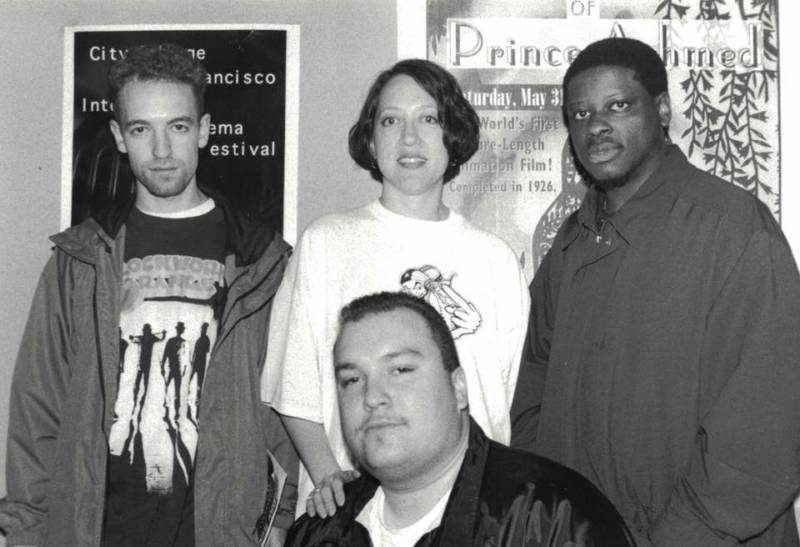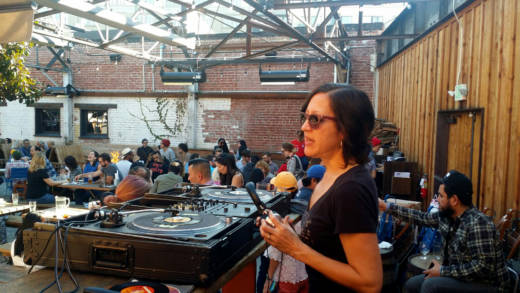DJ Stef and I first met around 2011, when I, as a 21-year-old UC Berkeley student eager to leave campus and experience real culture, started frequenting Oakland warehouse parties. Though I barely knew anyone at first, many like-minded music lovers who lived for wild nights in dingy warehouses and dive bars turned into longtime friends. On one of those nights, in a venue that smelled like liquor, spray paint, and sweat, I met Stephanie Ornelas, a.k.a. DJ Stef.
Like many, I was devastated to learn that Stef passed away from an unexpected heart attack at her San Francisco home on Sunday morning, leaving behind her husband, Sergio Ornelas, and an enormous circle of friends and admirers. She was 55 — only a couple years older than my mom — and was universally beloved as the “cool aunt” of the local hip-hop scene.
Stef made an impact on Bay Area culture in innumerable ways. She was a gifted DJ with an enormous vinyl collection; a graphic designer and self-taught web developer with an impressive client base; a hip-hop journalist who enthusiastically embraced the internet before it became mainstream; and a gregarious networker who introduced future spouses, business partners, and creative collaborators to one another.

I don’t know anyone in the Bay Area who attended as many shows as often as she did — her diehard fandom gave her more stamina than music fans my own age. Whether in the audience or behind the decks, Stef always wore a band tee and an effusive smile, ready to share a laugh and geek out about mutual faves like E-40. And even though she rubbed shoulders with prominent figures like Living Legends, Peanut Butter Wolf, and Z-Trip over her three-decade-plus tenure in the local music scene, she remained humble and open.
Ian Taggart, a San Francisco producer who goes by Young God of the group Blue Sky Black Death, remembers talking to Stef on a hip-hop message board before meeting at a concert in 2001 when he was 15 years old. “I was this teenager with no social capital, and from the very first time I met her, she just welcomed me into her circle,” he says. “She was never in the music scene to be cool. She just cared about music and appreciated other people.”



